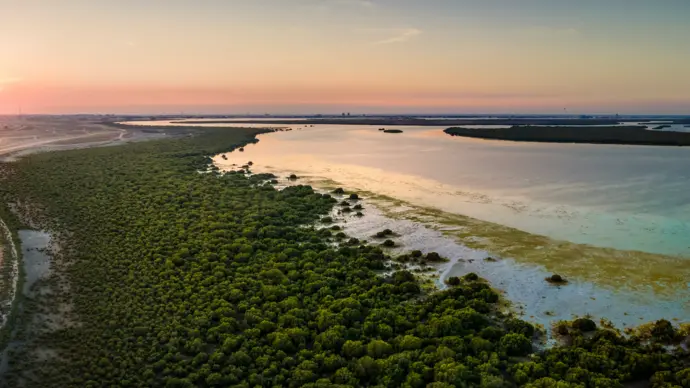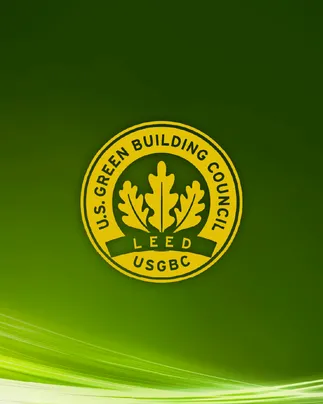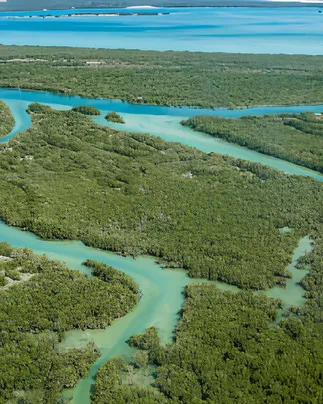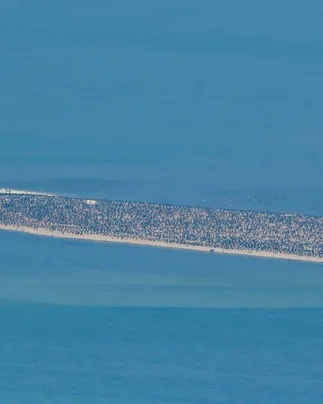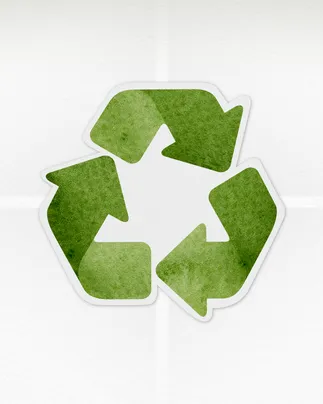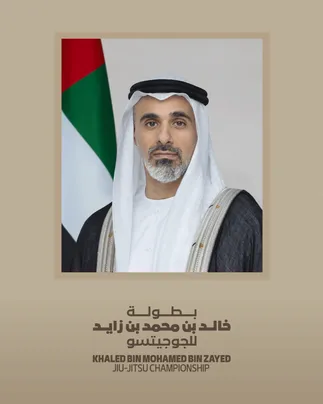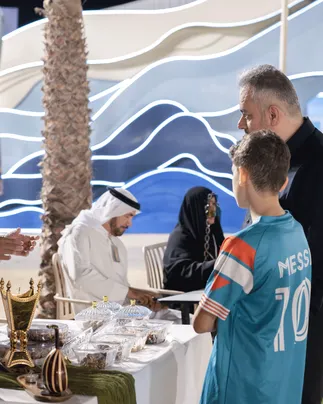The Environment Agency – Abu Dhabi (EAD) has announced that its Blue Carbon Environmental and Social Responsibility Project, in collaboration with ENGIE and Distant Imagery, has been selected among the 12 Uplink Ocean Top Innovations.
The drone technology developed by Distant Imagery for the EAD was one of the winners of the Blue Carbon Challenge, which was launched by Friends of Ocean Action, Uplink and the Mangroves Working Group. Conservation International, Coastal Oceans Research and Development – Indian Ocean (CORDIO) East Africa, REV Ocean, and GIB Asset Management were also part of the effort as supporting partners.
The Blue Carbon Challenge on UpLink recognises innovative solutions, projects, and enabling tools that can harness the potential of blue carbon markets to support environmental conservation, habitat restoration, and coastal management for people, nature, and help combat climate change.
The selected 12 UpLink Ocean Top Innovators will receive technical support and valuable connections to implement their projects.
The Blue Carbon Project, undertaken by EAD in partnership with ENGIE and Distant Imagery, involves striving to plant more than 35,000 mangrove seeds in the Mirfa Lagoon in Abu Dhabi, using highly innovative drone planting technology. This project aligns with the recent ambition by the UAE entitled the Abu Dhabi Mangrove Initiative launched by His Highness Sheikh Khalid bin Mohamed bin Zayed Al Nahyan member of the Abu Dhabi Executive Council and Chairman of Abu Dhabi Executive Office and Prince William, Duke of Edinburgh in February of this year.
Ahmed Al Hashmi, Executive Director - Terrestrial & Marine Biodiversity on the occasion said: “At EAD, we are always striving to work using innovative and state-of-the-art technology for the implementation of our projects and being recognised by Uplink for our Blue Carbon Project is a reflection that we are on the right path. Our project was very ambitious and pioneering because it had never been done before in the region, and through using cutting edge drone technology to plant mangroves we are striving for high success rates for restoration.”
He added: “Blue Carbon - carbon stored in aquatic ecosystems, like mangrove forests and seagrass beds, has the potential to store five times as much carbon per square foot as terrestrial ecosystems. Through projects like ours we will be able to reduce emissions and capture carbon in natural carbon sinks offering a transitional step to Net-Zero by 2050, which is one of the main goals of the UAE.”
“We are delighted that through our partnership with the EAD we have been able to evolve our drone technology. Our collective success is thanks to adoption of an ecological-led approach throughout each project phase; the seeds are dropped at the right time, tide level, soil depth, and in the perfect location, but it is nature that takes it course and makes it a success” comments Jane Glavan, Co-founder, Distant Imagery.
Florence Fontani, Vice President Communications and Sustainability, ENGIE Africa, Middle East, and Asia (AMEA) added, “Technology and sustainability have come together wonderfully in this unique conservation project in Abu Dhabi. This project is truly a first in the world and I am proud that we have received such recognition for the innovation demonstrated. The project demonstrates a novel approach to rehabilitating the Emirate’s mangrove habitats using drone technology. An effective way to mitigate the effects of climate change and restore natural habitats and biodiversity, we look forward to sharing the learnings of this first-of-its-kind project and implementing similar initiatives that will accelerate our goals towards carbon-neutrality.”
The UAE based Unmanned Aerial Vehicle environmental analysis company, Distant Imagery, developed extremely accurate maps and analysed potential planting sites. Distant Imagery drones made from simple and scalable 3D-printed components, coupled with very accurate planting can be a benchmark in mangrove restoration. Their technology can drop 2,000 germinated seeds, or 500 seedballs, in ten minutes.


